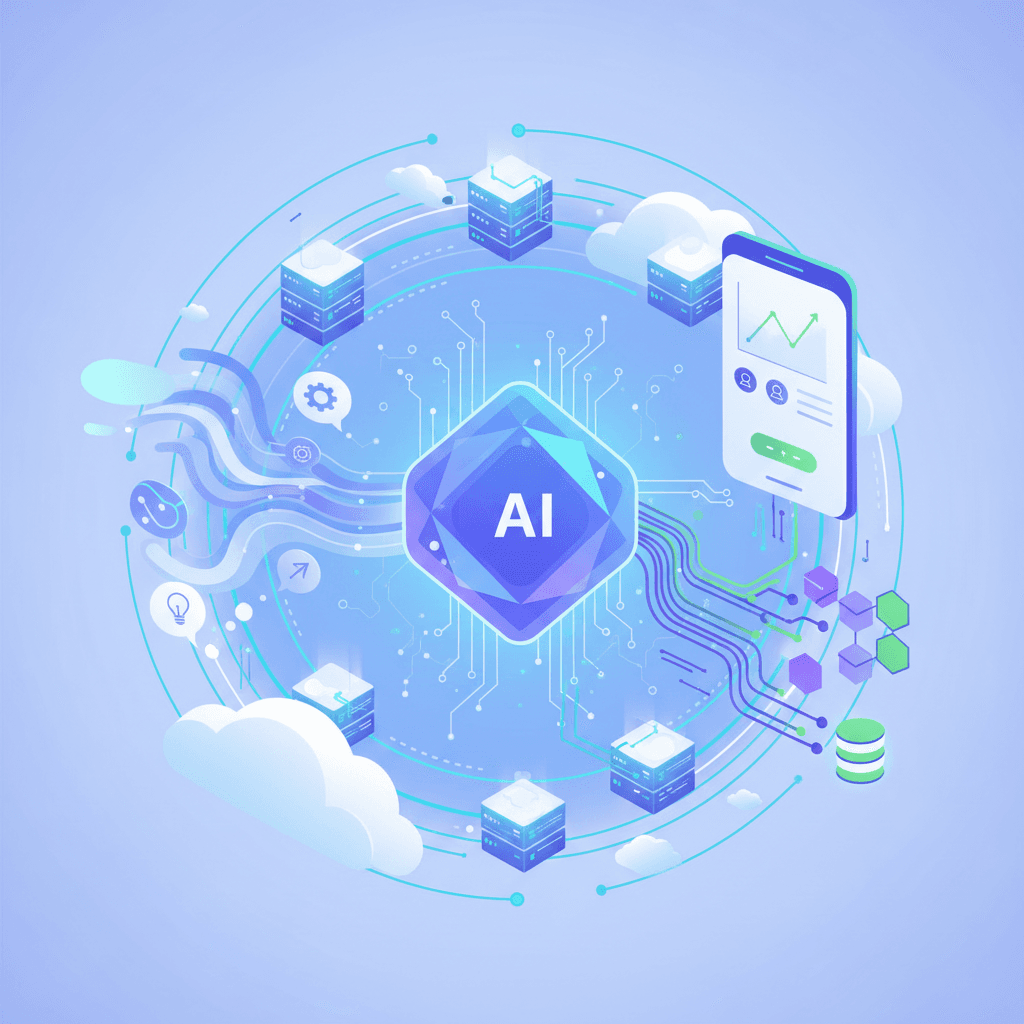Lovable's Gemini-powered AI Cloud democratizes full-stack app building with natural language.
Unlocking full-stack development for all: Lovable's AI, powered by Google Gemini, generates powerful applications from plain English descriptions.
September 29, 2025

In a significant move to democratize software development, the application-building platform Lovable has introduced Lovable Cloud and Lovable AI, a suite of features designed to drastically simplify the creation of full-stack applications.[1] This new offering, powered by Google's advanced Gemini models, allows users to integrate powerful artificial intelligence capabilities into their applications without needing to manage setup processes, API keys, or separate billing cycles.[1] The core value proposition of this launch is to make the development of sophisticated, feature-rich applications more accessible to a broader audience, including entrepreneurs and developers who may lack deep technical expertise in cloud infrastructure and AI integration.[2][3] The company asserts that with these new tools, the process of building complete applications, from the user-facing front-end to the complex back-end logic, is easier than ever before.[1] This development signals a continuing trend in the tech industry toward lowering the barrier to entry for software creation, leveraging AI to automate and streamline traditionally complex tasks.
The introduction of Lovable Cloud provides a comprehensive, full-stack platform that manages every aspect of an application's infrastructure.[4] This includes the front-end that users interact with and the powerful back-end systems that handle data processing, user authentication, and other critical functions.[2][4] Users can now describe their desired application in plain English, and Lovable will automatically generate both the front-end and back-end code, ready to be deployed on the cloud.[5][4] This eliminates the need for developers to manually configure servers, databases, and other cloud components, a process that can be both time-consuming and error-prone.[6] The platform scales automatically to meet the demands of a growing user base, from a small prototype to an application with millions of users.[4] Lovable Cloud is built upon the open-source foundation of Supabase, providing a production-ready environment from the outset with features like a robust database, real-time updates, and secure user authentication without separate setup.[3][4] The seamless integration of Lovable AI, powered by Google's Gemini, further enhances this simplified workflow.[1] This allows for the effortless addition of AI-driven features, as the platform handles the complexities of model integration behind the scenes.[1] The result is a unified development experience where building and deploying a full-stack application with advanced AI capabilities can be accomplished through a single, prompt-based interface.
Lovable's approach to application development centers on the use of natural language prompts to generate functional code.[2][5] Unlike traditional no-code platforms that often rely on drag-and-drop interfaces, Lovable generates real, editable code for both the front-end, using technologies like React and Vite, and the back-end.[5][3] This gives users complete ownership and control over their applications, with the ability to export the codebase to GitHub for further customization or collaboration.[5] This hybrid approach appeals to a wide spectrum of users, from non-coders who can bring their ideas to life without writing a single line of code, to experienced developers who can use Lovable to rapidly prototype and build the foundational structure of their applications, saving significant time and effort.[7][2][5] The platform can be used to build a variety of applications, including minimum viable products (MVPs) for startups, internal tools for businesses, data analytics dashboards, and marketplaces.[7][5] The process is designed to be intuitive; a user can start by simply describing their application idea, and Lovable's AI will generate the initial code and a live preview.[8] From there, users can continue to refine and add features through further text-based instructions, with the AI handling the underlying code implementation.[2]
The implications of platforms like Lovable are far-reaching for the software development industry and the broader creator economy. By abstracting away the technical complexities of coding and cloud infrastructure, these tools are empowering a new wave of creators and entrepreneurs to build and launch their own software products.[9] This "vibe coding" approach, as some have termed it, allows individuals to focus on their product vision rather than the technical minutiae of implementation.[10] The success of this model is already being demonstrated by early adopters of the Lovable platform. The company has cited several examples of entrepreneurs who have built profitable businesses using their tools, such as a women's safety app that achieved significant annual recurring revenue in a short period.[1] This shift not only accelerates the pace of innovation by enabling faster prototyping and iteration but also diversifies the pool of who gets to be a software builder.[9] As AI continues to become more capable, the distinction between idea and functional product is expected to shrink even further, with prompt-driven development becoming an increasingly viable path to market.
In conclusion, Lovable's introduction of Lovable Cloud and Lovable AI represents a significant step forward in the evolution of AI-powered software development. By combining a natural language interface with a robust, scalable cloud infrastructure and the power of Google's Gemini models, Lovable is offering a compelling solution for anyone looking to build full-stack applications quickly and efficiently. This move not only challenges traditional development paradigms but also opens the door for a more inclusive and accessible digital future, where the ability to create powerful software is limited only by the creator's imagination. The platform's ability to generate real, ownable code ensures that it is not just a tool for beginners but also a powerful asset for experienced developers looking to streamline their workflows. As the AI industry continues to mature, the impact of such platforms on fostering innovation and entrepreneurship will be a key area to watch.